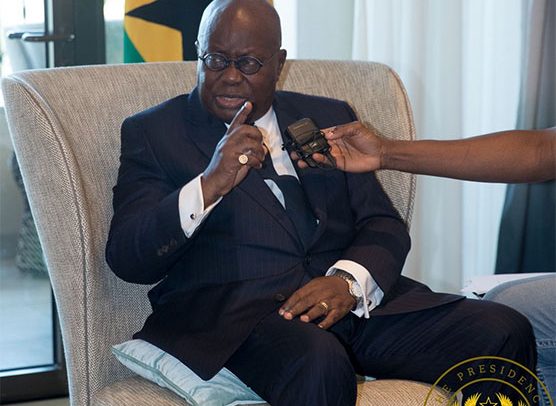President Akufo-Addo has expressed serious reservation about the growing incidence of chieftaincy disputes across the country.
He says the long list of chieftaincy conflicts are having a telling effect on the public purse and that government wastes too much money resolving what he described as needless and avoidable chieftaincy conflicts.
“Whenever we go for our daily security meetings, half of the meetings are devoted to chieftaincy matters,” he said and added that apart from the issue of public disturbances, chieftaincy disputes has led to many deaths and destruction of several properties.
This was when a delegation from the Ahafo Regional House of Chiefs called on him at the Jubilee House yesterday.
He, therefore described violent chieftaincy clashes as a major concern to the government.
That, he said was because government spends lots of money deploying security forces and taking extra security measures in areas of chieftaincy dispute across the length and breadth of the country.
He has thus appealed to all the regional houses of chiefs to help resolve the issue by codifying succession lines to help avoid conflicts.
“I went to Kwahu recently for the Easter festival and I was amazed with what the traditional authorities are doing there. They have developed the Kwahu State Book which has set out the genealogy of all the royal families in the Kwahu State and the stools to ensure that in future, they can follow succession plans without problems,” he said.
The President thus urged traditional authorities in the country to follow the example of the Kwahu State Book and codify the royal lineages.
He however pledged to address the development challenges in the Ahafo region, including lack of roads and facilities in the schools in the area.
On his part, President of the Ahafo Regional House of Chiefs, Nana Ansah Adu Baah II, said the greatest challenge confronting the region was the poor road network.
“We will be grateful if the road network can be improved,” he said and presented a litany of challenges confronting the region to the President.
By Charles Takyi-Boadu, Presidential Correspondent


